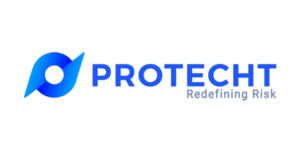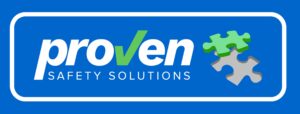Risk Management
What is Risk Management?
Risk management is a series of steps taken which identifies, analyses, and evaluates potential risks or opportunities. Effective risk management incorporates strong communication and monitoring to ensure everyone is brought along and all controls are suitable and effective.
Risk can have a positive or negative impact and can vary widely depending on the circumstances.
Risk management is a fundamental component of good governance and plays a crucial role in decision-making and strategic planning.
Why is risk management important?
The purpose of risk management is the creation and protection of value. Risk management is important to ensure you get greater consistency and efficiency in your organisation. By minimising disruption and streamlining process a team is more likely to achieve the outcomes or objectives it has set. In addition to outputs, your team members have greater certainty, your people are generally happier, and your culture becomes more resilient.
From the perspective of a customer or a supplier, your organisation becomes a reliable partner who delivers what has been agreed more consistently. You become a partner of choice.
From the perspective of your people a risk assessment identifies the potential for harm so you can ensure your people go home safe every day.
In all jurisdictions throughout Australia and New Zealand, there is also a requirement to identify risk and to ensure suitable controls are applied to minimise or mitigate risk. Failing to identify and mitigate risk can lead to regulatory interventions, adverse findings, and in the most severe cases, prosecution.
What are the benefits of risk management?
The key benefit of risk management is that there is less disruption. Disruption leads to delays, stress, unnecessary expense, impacts to your reputation, and a failure to meet the expectations of customers and clients. In short, greater costs. Organisations who effectively employ risk management strategies have identified the following benefits:
- Informed decision making;
- Process efficiency;
- Regulatory compliance;
- Improved communication; and
- A competitive advantage.
What are the benefits of risk management?
The key benefit of risk management is that there is less disruption. Disruption leads to delays, stress, unnecessary expense, impacts to your reputation, and a failure to meet the expectations of customers and clients. In short, greater costs. Organisations who effectively employ risk management strategies have identified the following benefits:
- Informed decision making;
- Process efficiency;
- Regulatory compliance;
- Improved communication; and
- A competitive advantage.
Get A Quote
Our safety experts work with you to ensure you get what you need for your organisation.
What are the categories of risk?
Categories of risk vary depending on the needs of the organisation. The most common categories of risk include:
- Financial risk;
- Regulatory risk;
- Environmental risk;
- Work health and safety risk;
- reputational risk;
- Business continuity risk; and
- Supply chain risk.
What is the ISO standard for risk management?
The international guideline for risk management is ISO31000:2018. This has been adopted in Australia and New Zealand and provides a common approach to managing any type of risk and is not industry or sector specific.
A risk based approached is embedded in all new management standards such as:
- ISO 9001:2015 Quality Management Systems;
- ISO 14001:2015 Environmental management Systems;
- ISO 45001:2018 Occupational health and safety management systems;
- ISO 27001:2023 Information security, cybersecurity and privacy protection; and
- ISO 22301:2021 Security and Resilience (often referred to as Business Continuity).
How do we monitor risk to ensure it is controlled?
To effectively monitor risk, key roles play their part in day to day or front-line management. To ensure risk management is embedded and consistently part of your management system, an audit program should be established to review the effectiveness of controls and make suggestions for improvement. Organisations which use external auditors to do this often find the outcomes are more independent and objective and the recommendations lead to improvements sooner.
Audit programs that are overseen by top management result in a more dynamic approach to risk management with greater accountability and improve outcomes for the organisation as a whole.
Client Feedback

Kenneth Willoughby
Sub Branch and District Boards
"The training we received addressed our needs and was tailored to the circumstances of the RSL in Queensland."

Merv Brown OAM
BRISBANE NORTH DISTRICT RSL QLD
"The way the facilitator responded to questions was a highlight and the takeaway resource were a good reference for later on."

David Hyman
OZCOM Recycling
"Proven Safety helped us to grow by integrating our management systems."

Alex Macho
ISCHEBECK-TITAN
"Localise our international way of working to make sure we were meeting our obligations within Australia."

Jason
NAK Hair
"Manage our obligations with more integrated supply chain operations."

Dr Pillai
Abacus dx
"A specialist to guide us through the outcomes of a Stage One certification audit."

Brendan
Autumn Lodge
"We were looking for Training for managers and WHS committee members"

Walter
Wombat Valley Food Group
"We would use them again as they were very professional and efficient."

Director Kasey
Granville Community Kindergarten
“We were looking for someone who could help us with an external review of our safety. Their approach was friendly, practical and thorough."

Megan Leddin
Aged & Community Care Providers Association (ACCPA)
“Proven Safety Solutions supported us when we needed expertise in Safety Governance.”

Richard
Was very effective communicating our strengths and where we need to show improvement.

Bridget
Micheal was a terrific presenter, clear, engaging, knowledgeable. The material was relevant and interesting, and importantly thought-provoking.

Paul
Micheal's experience, knowledge and engagement throughout the audit on site, provided clear and concise feedback, allowed constructive discussions both in challenging the questions and with the opportunities this audit exposed.

Bruce Howle
Key Solutions Group
"Real world examples about safety obligations for Officers."
Our Valued Clients























